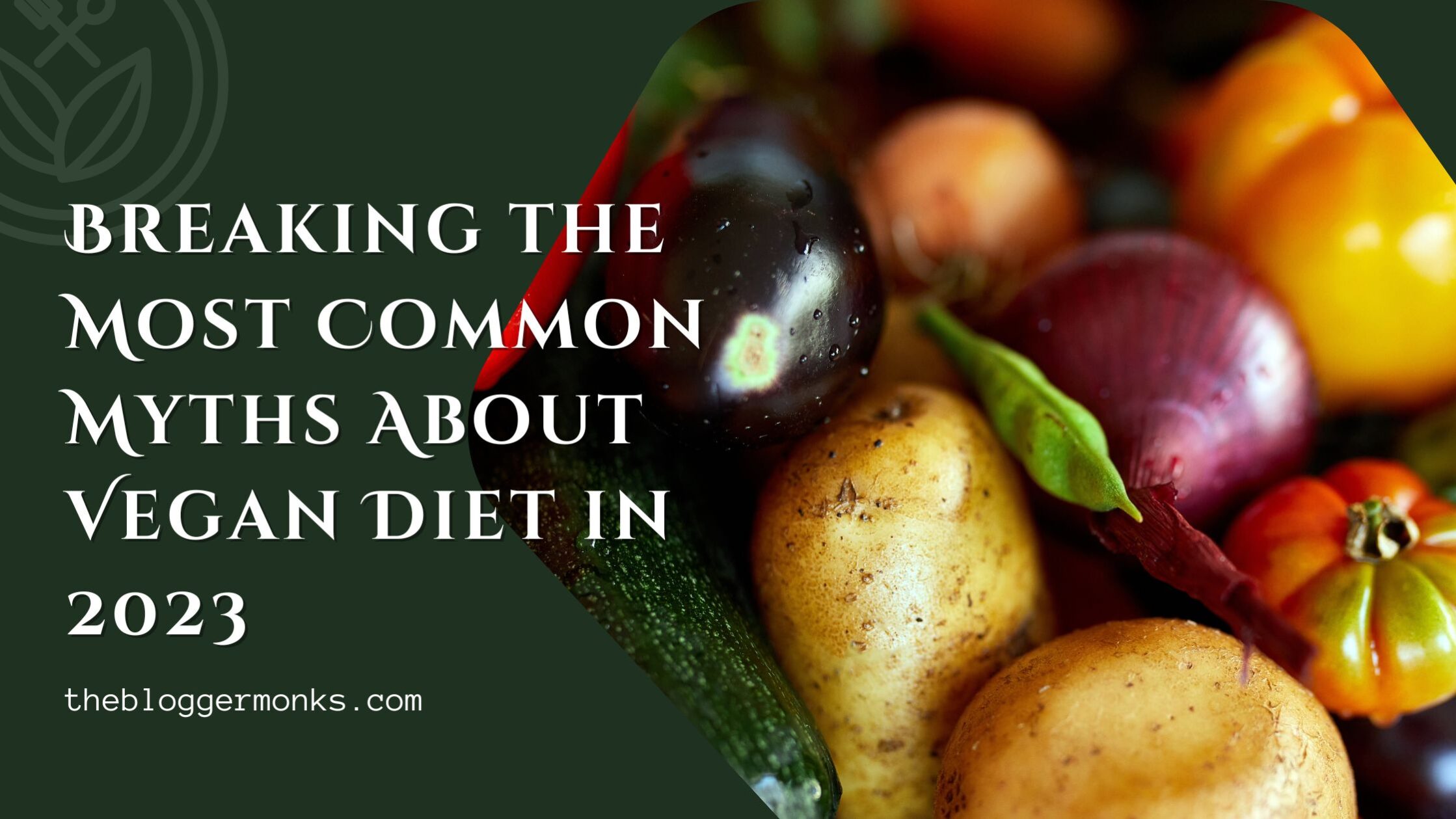If you’re a vegan or have recently turned one, you’re probably surrounded by random assumptions about veganism coming from all corners – sometimes, even your own. If you’re NOT a vegan, you likely have some concerns that graduate to mythical proportions when surrounded by ignorance and more speculation. Some of these concerns and assumptions are as mythical as the stories our grandparents used to feed us about seeds – “If you swallow a seed, a tree will grow inside you”. Here in this article, we are all set to breaking the most common myths about vegan diet in 2023. Read through this 15 commonly myths revolving around veganism and the facts for the same.
A little background check on questions about veganism never hurt anybody. If we can Google cat pictures, we can Google questions about veganism too. But let us save the trouble of doing even that.
Here are some of the most common myths and facts about vegan diet in 2023!
Myth: Veganism and Vegetarianism are the same
Fact: This is the most common assumption we’ve come across, especially in India, which has a fairly large vegetarian population. Vegans do not consume meat, eggs, milk or any dairy product derived from animals or containing animal sources. Vegetarians do not consume meat, but they do consume dairy products and in most cases, in large quantities.
Myth: Plants have feelings and should not be harmed from their natural harmony
Fact: Okay, let’s go back to school for a moment. Yes, plants do not have a central nervous system. But if you pick up fruits from a tree, it will not hurt them. It’s just like clipping off a nail!
Myth: To Build Strong Bones, You Must Include Dairy in Your Diet
Fact: Dairy is not the only food that can help build and protect strong bones. Several nutrients are needed for bone health, including calcium, vitamin D and protein. Each of these nutrients can be found in plant foods such as kale, broccoli, bok choy, calcium-set tofu and fortified soymilk. Some vegetables such as spinach and rhubarb are good sources of calcium, but they also are high in oxalates.
Myth: Vegetarian Diets Are Not Appropriate for Pregnant Women, Children or Athletes
Fact: A well-planned vegetarian or vegan diet can meet the nutrient needs of people from all stages of life, including pregnant and lactating women, children and athletes. It’s just about making sure you get the nutrients you need.
Myth: Honey is vegan.
Fact: “A bee secretes honey naturally, so consuming honey is vegan no?”
Not really. Honey bees do secrete honey naturally, but for their consumption, the same way a human mother secretes milk for her baby. Moreover, honey is the winter storage for the entire beehive. Industrializing and consuming honey has and can lead to the bee population lessening. If bees stop pollinating, it directly affects the growth of plants and vegetable crops and the overall ecosystem.
Myth: Just because something is vegetarian; it is healthy.
Fact: The “vegetarian” or “vegan” label doesn’t automatically equal good health. While some cookies, chips and sweetened cereal might be vegetarian foods, they also are likely high in added sugars and oils.
Myth: Vegan food means boring diet food
Fact: Being vegan doesn’t mean you have to starve! Salads sprinkled with nuts, seeds and delectable toppings, coffee and smoothies made with alternate milk options and even French fries made with sweet potatoes are great starting points! With a little bit of insight and innovation, your vegan experiments can soon become your mainstream diet.
Myth: Vegans don’t get enough protein
Fact: The common misinformation that people readily buy is that humans gain protein only from animal products. This is false. Plant-based protein sources are aplenty (Read: soya, lentils, pulses, broccoli, seaweed, peas and spinach, beans, brown rice, whole-wheat bread and pasta, quinoa, peanuts, cashews, almonds, pistachios and walnuts)
Myth: Veganism leads to malnutrition
Fact: Quite the opposite. A balanced vegan diet is known to boost the immune system, enable better heart function, provide more endurance and promote healthier skin.
Myth: Soy milk is the only alternative to animal milk
Fact: There are plenty of other options for plant-based milk other than soy, although that might be the one most widely used. Coconut milk, almond milk, cashew milk, hazelnut milk, hemp milk, rice milk are a few of the other options that substitute easily for animal milk.
Myth: Being vegan means being healthy
Fact: Okay, I know this is confusing, especially considering point number 7. But the point we’re trying to make here is that veganism does not guarantee good health. Like anything in life, you have to work hard at achieving it. You may be on a completely vegan diet, but if you consume oil-based products all the time and don’t exercise, no type of dairy-free lifestyle is going to help you lead a healthy life. It is important to maintain a balanced diet, no matter what food you choose to eat.
Myth: Vegans care only about animals and not humans
Fact: This is completely untrue. Veganism impacts human life just as much as it impacts animal life. By leading a vegan life, you’re automatically making our human world a more livable place. It directly impacts the environment and the quality of life we lead as a whole. A life led without cruelty will always create ripples of good around.
Myth: Eating Soy causes cancer
Fact: Soy – high in protein, fiber, and antioxidants is a vegan diet mainstay. So, any links between soy consumption and cancer risk are naturally alarming.
Myth: Vegan diet is expensive
Fact: Veganism is not more expensive than a meat-eating lifestyle. Sure, the price of organic foods and cosmetics will be higher than the commercial animal-based ones in the market, but this is because of the demand-supply ratio. When the demand for organic products goes up, the price will automatically come down. More importantly, your monthly budget will even itself out when you realize you’re not going to be purchasing a hell lot of animal products.
Myth: Being vegan damages relationships with family and others
Fact: For a lot of people, becoming a vegan is a big (and necessary) change in their lifestyle. Like any change in life, it takes a while for the immediate surroundings to get used to it. Family members might object to your choice because they might not be aware of it. This does not mean that it damages your relationship with them. They’ll only understand if you give them valid explanations behind this.
At the end of the day, it’s important to stand by your beliefs. But we hope we were able to break the most common myths about vegan diet in 2023. If you like this article and relate to it, please share it across. Also, let us know what you think about this article in the comments below.





